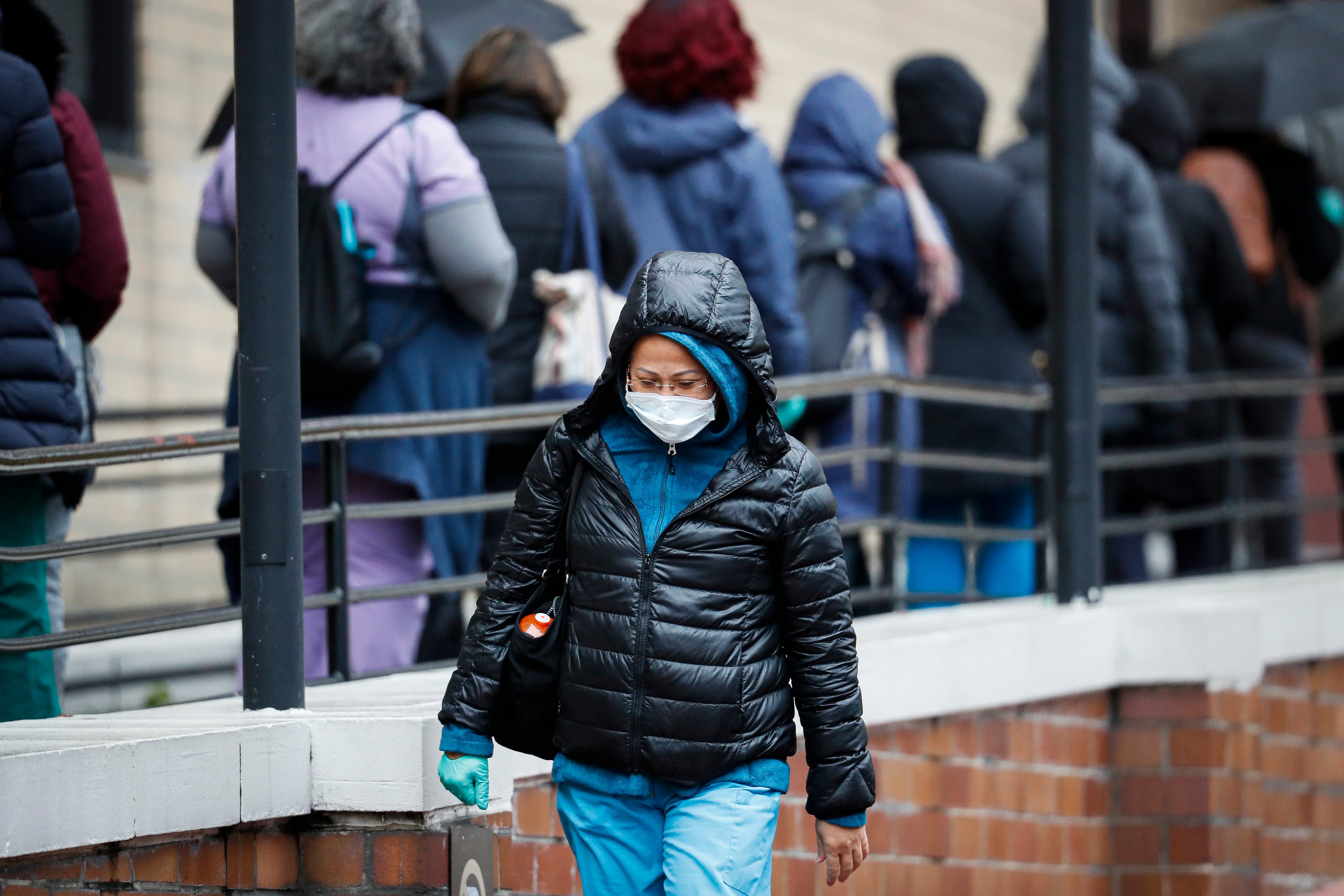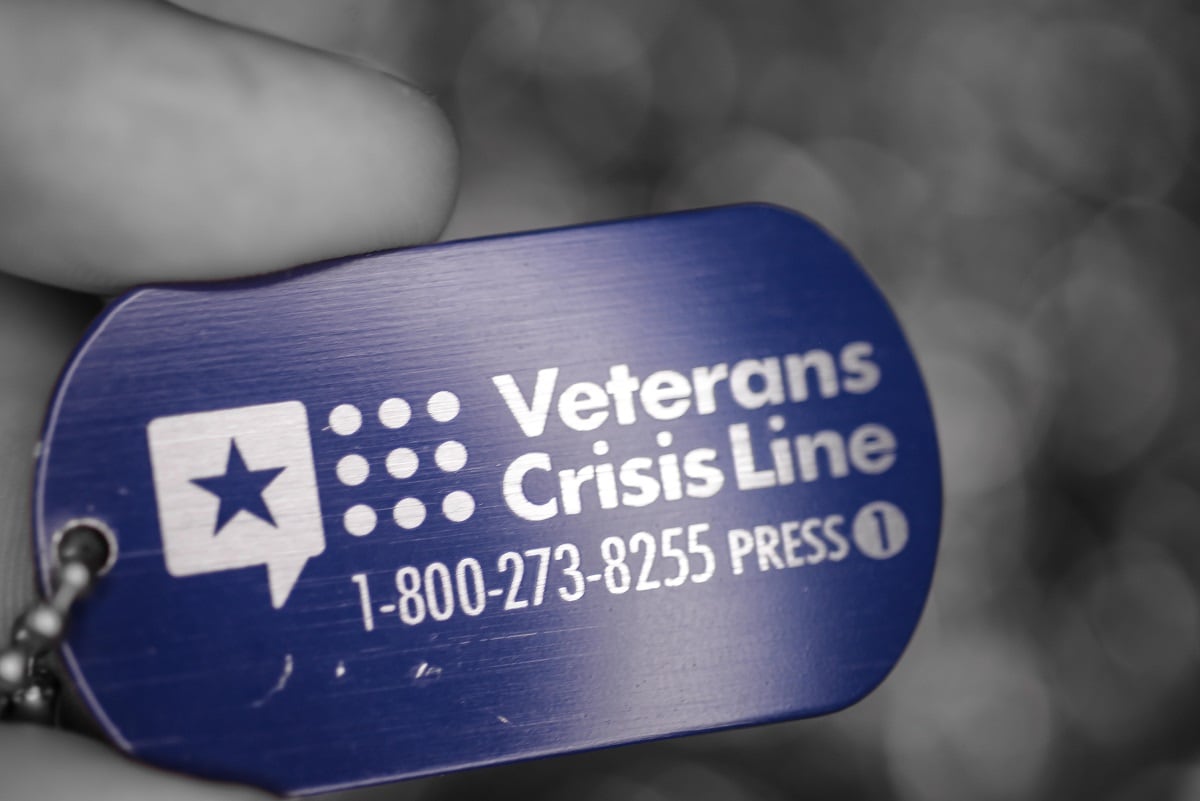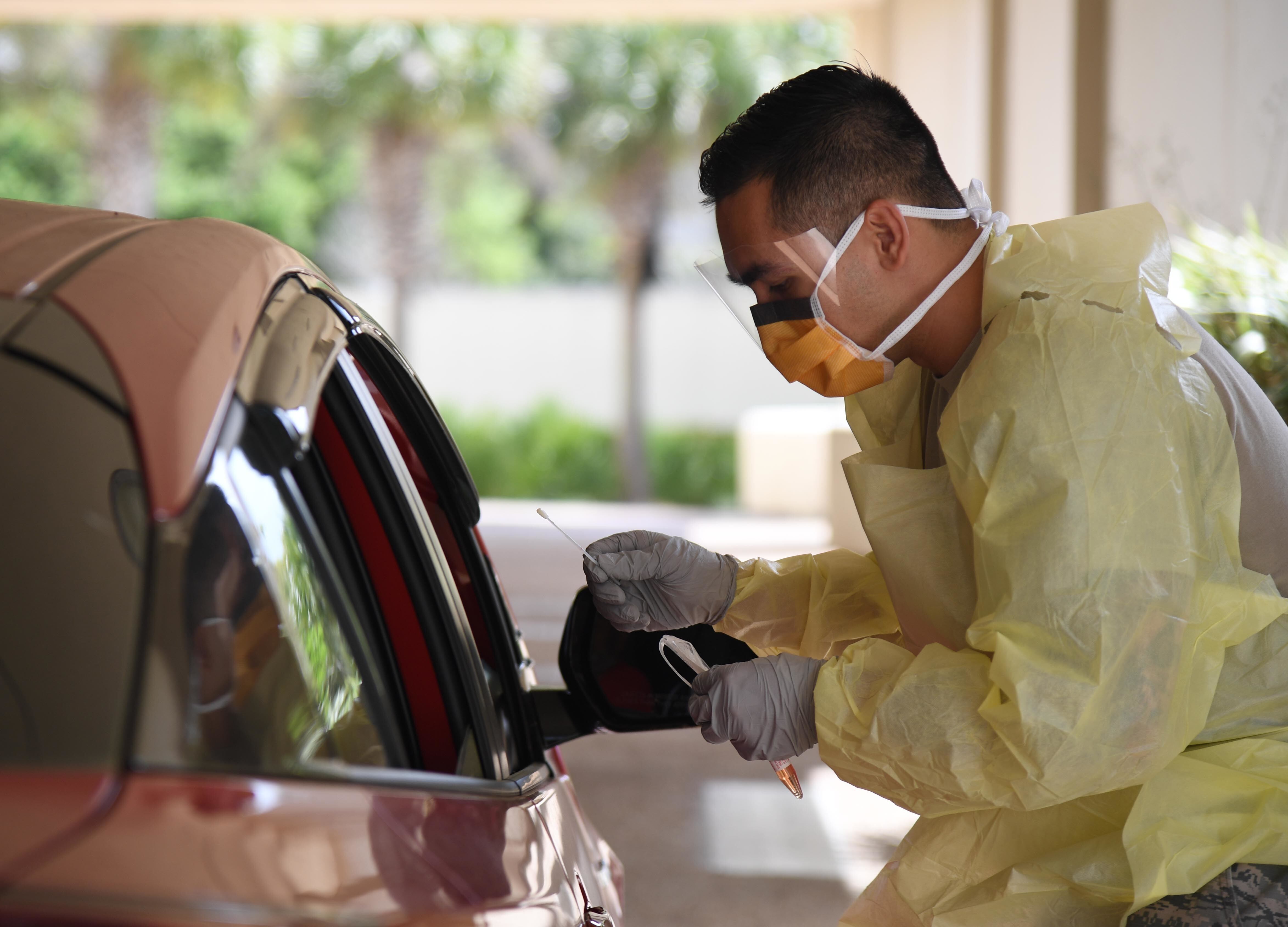Veterans’ isolation and stress from the coronavirus pandemic could increase their chances of suicidal thoughts, but health experts are warning that the worst impacts to their mental health could come after the immediate crisis is over.
That’s because of long-term problems with personal finances, lingering health issues and misplaced expectations of mental health issues disappearing with a return to pre-crisis life.
“During the actual crisis, suicides can go down. It’s in the aftermath that it gets worse,” said Barbara Stanley, a research scientist at the New York State Psychiatric Institute, during a press call sponsored by National Action Alliance for Suicide Prevention on Thursday. “We expect to see fallout in terms of possible increases in suicide as a tail going forward.”
RELATED

Mental health experts on Thursday’s call said they’re raising the alarm now about the need for more public awareness about the mental health risks in the months ahead because the potential deaths are preventable.
Veterans — along with other citizens — need to know that feelings of depression, anxiety and even post-traumatic stress are both normal and expected after a massive crisis like the current pandemic, and that resources are available to help address those issues, they said.
About 20 veterans and active military personnel die by suicide each day, according to the latest figures from VA researchers and state census data.
That information typically lags about two years behind present conditions, meaning officials won’t know for a while what impact the coronavirus outbreak had on veterans mental health.
Matthew Miller, director for suicide prevention at the Department of Veteran Affairs, said officials there have seen a massive increase in mental health remote care usage in recent months, forced by the partial closing of many VA facilities to limit the spread of the virus.
Before March, about 15 percent of all VA mental health appointments were conducted over the phone or via video conferencing. Today that figure sits at 80 percent. Telephone appointments for those patients rose from about 170,000 a month before the pandemic to 768,000 in April alone.
“This has been an adjustment we made to make sure veterans have what they need,” Miller said. “And whether or not we keep offering these (remote) services, ultimately that’s up to the veterans.
“If a veteran finds this is a modality that increases their access to services, then VA is all in. If their preference is traditional, face-to-face meetings, we’ll keep that too. This just provides more options for the veteran.”
RELATED

Stanley predicts a “a marked rise in telehealth and teletherapy” in coming months for mental health care, noting that much of the resistance in the past to such appointments came from providers, not patients.
“Clinicians have had to make that adjustment, and it does work,” she said. “In the past, they may have never considered telehealth for suicidal clients. Now, they have been forced to make that change.”
Those expanded services could play a key role in giving a lifeline to the months ahead.
Julie Goldstein-Grumet, director of the Zero Suicide Institute at the Education Development Center, said individuals are more likely to seek out help if they see their mental health problems if they believe the problems are fixable.
“The key takeaway here is that suicide is not a forgone conclusion,” she said. “There are resources available.”
Veterans experiencing a mental health emergency can contact the Veteran Crisis Line at 1-800-273-8255 and select option 1 for a VA staffer. Veterans, troops or their family members can also text 838255 or visit VeteransCrisisLine.net for assistance.
Leo covers Congress, Veterans Affairs and the White House for Military Times. He has covered Washington, D.C. since 2004, focusing on military personnel and veterans policies. His work has earned numerous honors, including a 2009 Polk award, a 2010 National Headliner Award, the IAVA Leadership in Journalism award and the VFW News Media award.




